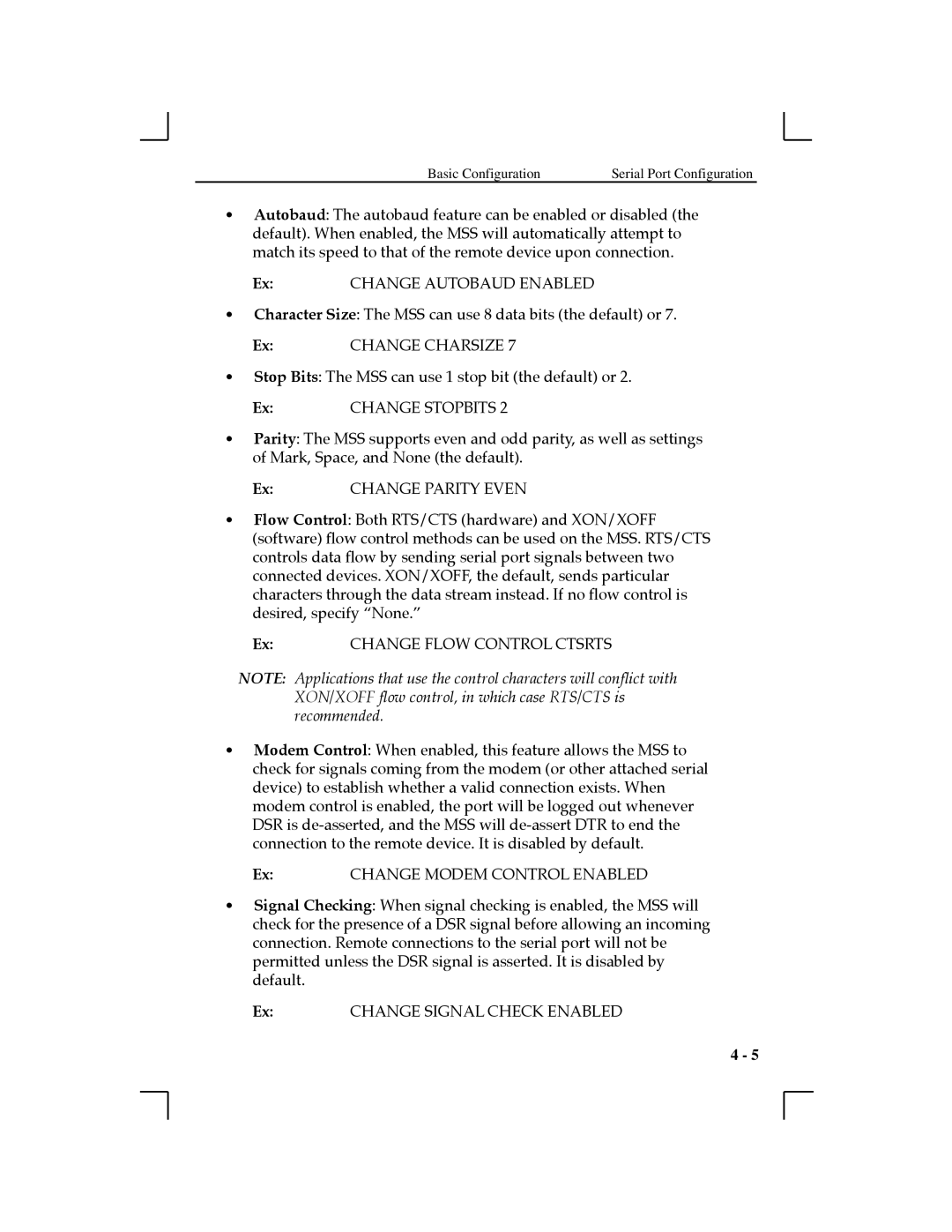
Basic Configuration | Serial Port Configuration |
¥Autobaud: The autobaud feature can be enabled or disabled (the default). When enabled, the MSS will automatically attempt to match its speed to that of the remote device upon connection.
Ex: CHANGE AUTOBAUD ENABLED
¥Character Size: The MSS can use 8 data bits (the default) or 7.
Ex: CHANGE CHARSIZE 7
¥Stop Bits: The MSS can use 1 stop bit (the default) or 2.
Ex: CHANGE STOPBITS 2
¥Parity: The MSS supports even and odd parity, as well as settings of Mark, Space, and None (the default).
Ex: CHANGE PARITY EVEN
¥Flow Control: Both RTS/CTS (hardware) and XON/XOFF (software) ßow control methods can be used on the MSS. RTS/CTS controls data ßow by sending serial port signals between two connected devices. XON/XOFF, the default, sends particular characters through the data stream instead. If no ßow control is desired, specify ÒNone.Ó
Ex: CHANGE FLOW CONTROL CTSRTS
NOTE: Applications that use the control characters will conflict with XON/XOFF flow control, in which case RTS/CTS is recommended.
¥Modem Control: When enabled, this feature allows the MSS to check for signals coming from the modem (or other attached serial device) to establish whether a valid connection exists. When modem control is enabled, the port will be logged out whenever DSR is
Ex: CHANGE MODEM CONTROL ENABLED
¥Signal Checking: When signal checking is enabled, the MSS will check for the presence of a DSR signal before allowing an incoming connection. Remote connections to the serial port will not be permitted unless the DSR signal is asserted. It is disabled by default.
Ex: CHANGE SIGNAL CHECK ENABLED
4 - 5
